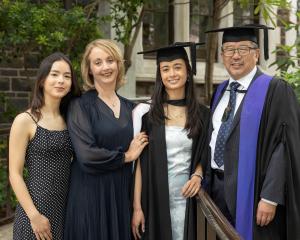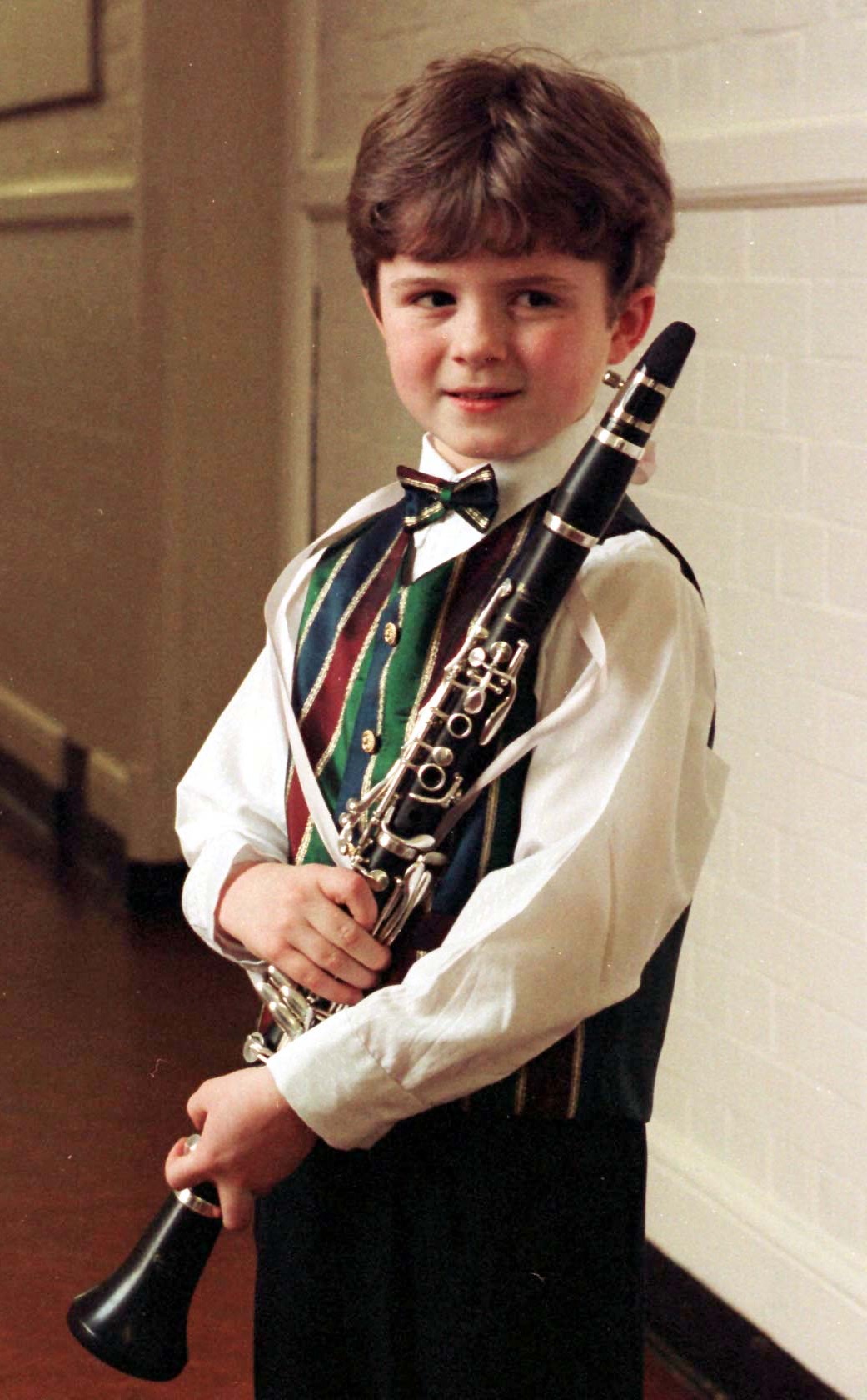
As a 5-year-old, Julian Bliss played clarinet on television — only a year after picking a musical instrument up.
"It was so much fun. I mean, being in these TV studios was hilarious to me and I was like a wide-eyed kid running around and jumping on everything, then they said you’ve got to play. I didn’t think anything of it," he said.
Looking back to those "fearless" days now that he is in his mid-30s is "kind of funny".
"Then it became very comfortable for me to be on stage from a very early age and even now I always feel very comfortable on stage and I love it."
Which is just as well, he says, given he has made a career as a concerto soloist, chamber musician, recitalist, jazz artist and masterclass leader and is considered one of world’s finest clarinettists.
Yet where his enthusiasm for the stage and the clarinet came from he is not sure. His family is not musical but when he was 4 he decided that he wanted to play a musical instrument.
Bliss, who was born in St Albans, England, was pretty determined about it so his family gave him a recorder to play with. He tried it out for a few weeks then wanted to have a go at something else.
They took him to a local music school where a delighted Bliss tried out all the instruments he could find. He admits he was already leaning towards a brass or wind instrument.
Then someone handed him a plastic clarinet.
"And that was it.
"Immediately, I mean, within a minute or two, I decided that that’s what I wanted to play and I never looked back, really."
Just why it grabbed him as a child, he does not know.
"It was just, yeah, I enjoyed doing this and I’m going to carry on."
He also enjoyed playing much more than he ever enjoyed school, although he always tells young students these days to pay attention in school because there are some things he wished he had paid more attention to.
"But I always knew what I wanted: I just wanted to play as much as I could. And yeah, it’s quite amazing to then be able to turn that into a career."
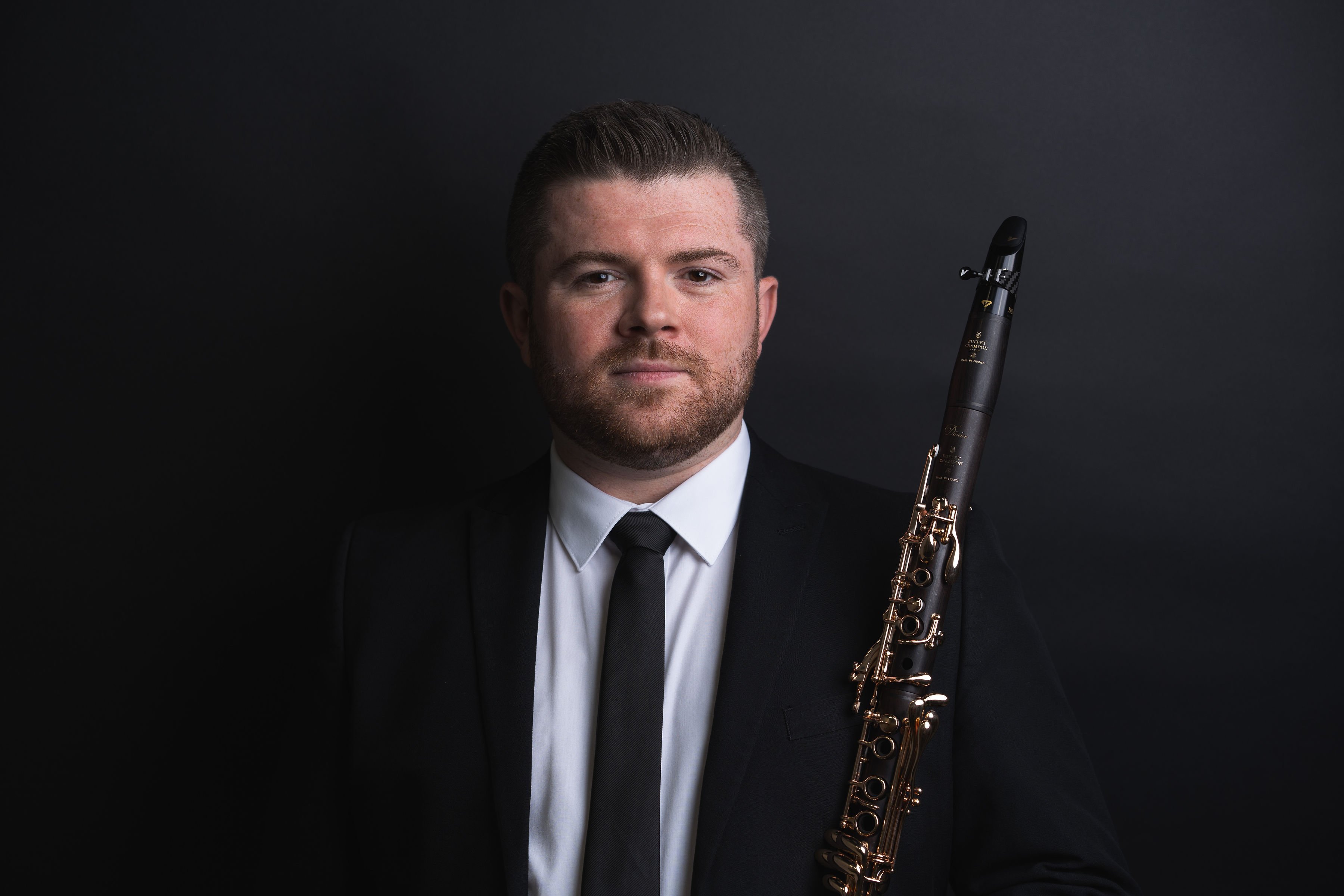
But what really changed the trajectory was when he was asked in 2002, aged 12 (only one day off his 13th birthday), to play for Queen Elizabeth’s Golden Jubilee in front of many of the Royal Family. He was not nervous at all, although his mother was. Instead he felt relaxed as he was in his element performing.
"That concert was televised to pretty much every country, I think. And so immediately you are on a global stage and it was after that the big people in the industry started to call and ask if I would go and play with them."
From there the next step was playing with some of the best orchestras in the world.
"I think that’s what really, if I can define a moment that sort of started my career or really make it take off, that would be it for sure."
Back then he did not realise that.
"I was just enjoying this fantastic event and sort of pinching myself. It didn’t feel real. Standing on stage and seeing the whole Royal Family, thinking this is this is not real life. I’m in a dream or something. But it was the most exhilarating thing ever.
"It was so, so fantastic and I’m so thankful that I had the opportunity to do it."
His determination and dedication to his music meant his schooling had to fit around it. His parents ensured he continued to go to school and do the exams so he could attend university.
"I’m thankful to them for sort of helping me navigate there because as a kid you don’t know these things."
That included going to study in the United States when he was only 11 as he was able to study clarinet at university level there. He studied under clarinettist Howard Klug at Indiana University, going to "normal" school in the mornings and then the university in the afternoon for two years.
"I don’t know if this is necessarily a fair assessment, but it felt like in the US they were more willing to bend the rules to accommodate having someone so young as part of the university."
He had a great time and was not at all concerned by being surrounded by much older people, instead finding it "enriching".
"I don’t know what they thought of a little 10-year-old running around the place, but we won’t ask them."
Bliss returned to England and "regular" school, although he commuted to Germany to study with Sabine Meyer at Musikhochschule Lubeck for seven years.
"She is probably, in my opinion, the greatest clarinet soloist."
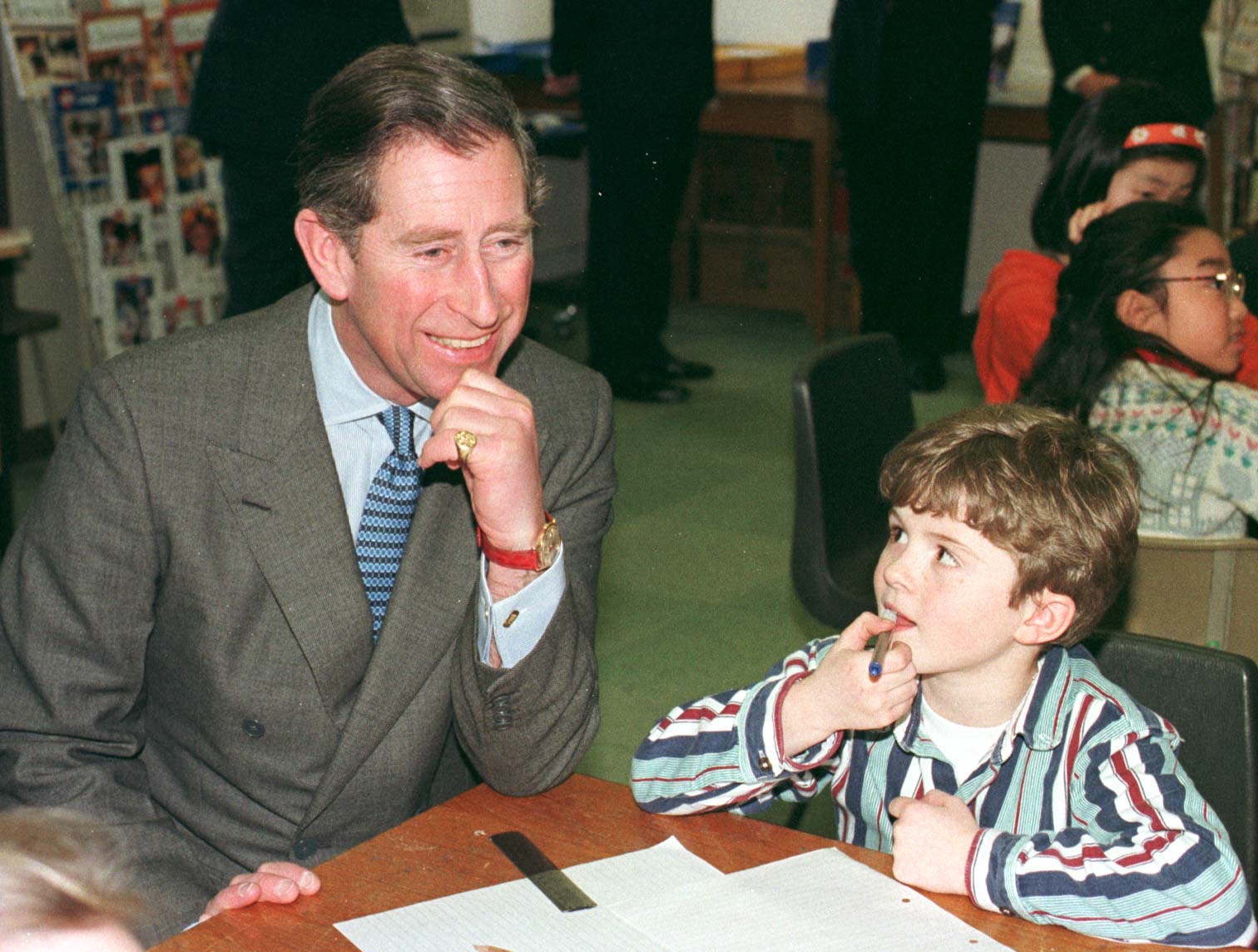
"Those days were very different. She’d say ‘see you tonight’ and I went into the airport and got myself on the plane. It was great, very enjoyable. "
A highlight of his career was getting to record with Meyer at Abbey Road Studios.
"It was the most amazing, amazing experience to be standing alongside someone that I admire and respect so greatly and making a recording with that person and this recording is going to be out there forever.
"That was a very, very important, very memorable time for me."
Despite all of the fanfare his parents did everything they could to ensure he had as normal a childhood as possible.
"I honestly never have felt that I’ve missed out on anything. If anything, I feel I’ve benefited because I got to travel to so many fantastic places and play for so many amazing people and performing in these venues that I mean, that’s kind of a dream come true."
AS a soloist Bliss has played with many of the top orchestras including Auckland Philharmonia, the London Philharmonic, Chamber Orchestra of Paris, and Queensland Symphony and in leading festivals and halls including Gstaad, New York’s Lincoln Centre, Mecklenburg-Vorpommern and London’s Wigmore Hall.
While he might make it look easy, the life of a professional musician is not always so and there is a fair bit of "blood, sweat and tears" and years and years of hard work that go into that — and failure. To be a successful musician requires "real determination, discipline and motivation", he says.
"Everyone will have something they don’t succeed at in their chosen field. And it’s very easy to let that get to you, that’s human nature, but you’ve got to always get back up and use it as an experience to make yourself better.
"Music is a very competitive industry ... Let’s take clarinet, for example. There’s a good amount of concerts, but there’s a lot of fantastic clarinettists out there. So you have to make sure you’re at the top of your game all the time, really. But the thing is, like most things in life, with the hard work, the reward or the end result can be so amazing.
"It makes all of those hard times sitting in a room in your house, shut away from [the world] when you’re slogging over the same note over and over and over again, it makes all of that worthwhile."
Bliss is a keen chamber musician and has collaborated with many top musicians including the New Zealand Trio, who he toured much of the country with years ago.
"That’s really very memorable because it was really nice to be on the road and be in a different place every day and we got a little bit of time to to sort of explore."
Co-founder of AWE Justine Cormack was then the trio’s violinist and invited him back to New Zealand for this year’s festival.
"I think even before they finished the sentence I said ‘yes please’. The last time I was there was too long ago. It’s really nice to see different parts of the country but we never made it as far as Queenstown [last time]."
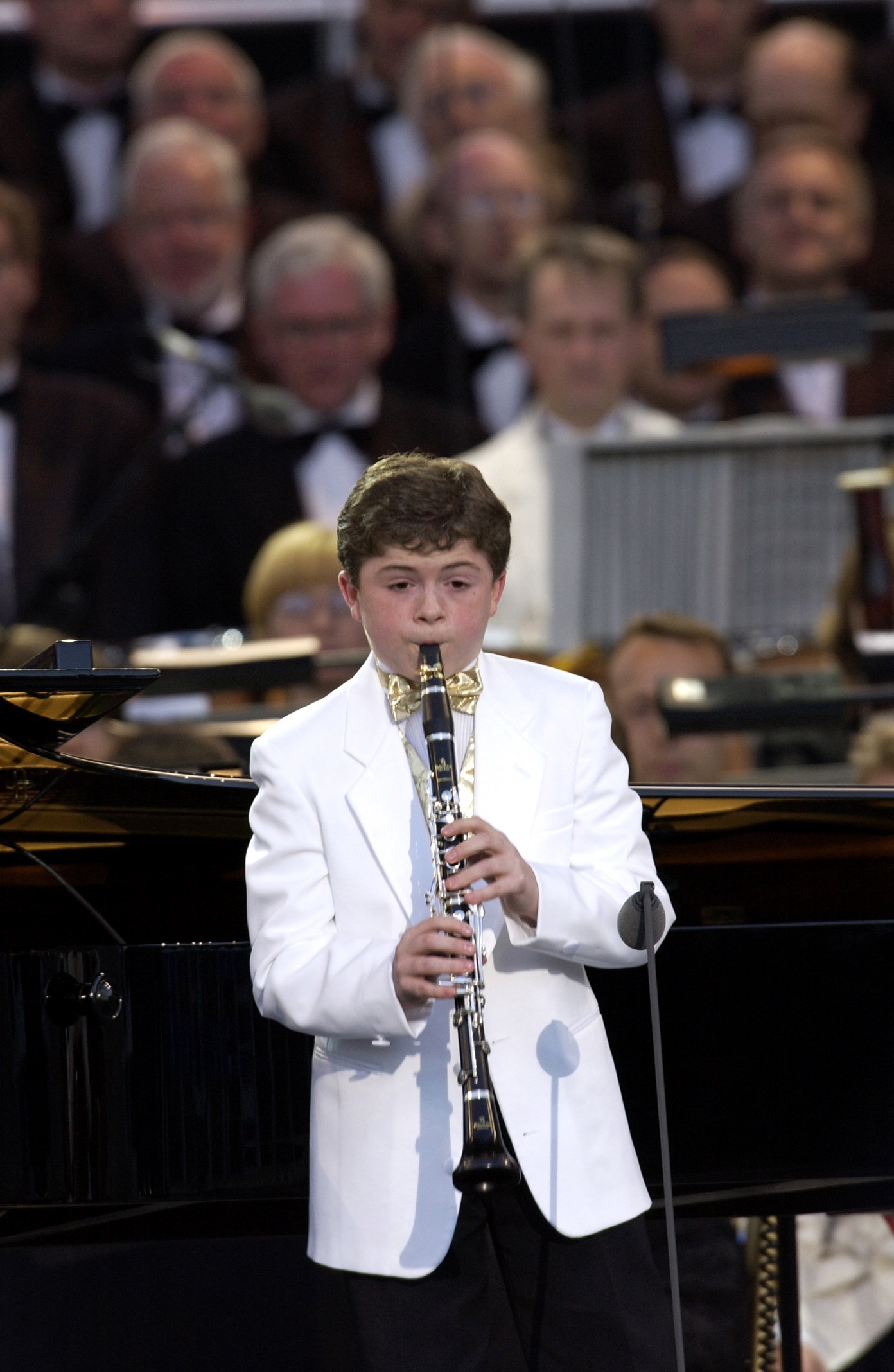
"It’s such a fun process. Whilst you’re preparing the music, you’re also getting to know each other, and that’s such a big part of music-making.
"So I’m really looking forward to sort of creating. You know it’s collective, creating something from nothing, in many ways and then seeing the audience enthused about it and enjoying what you play — it is very, very enjoyable and very rewarding."
But he also began to look at other forms of music, questioning why there are such carefully defined genres in music when so much could fall somewhere in between.
"I was always interested in jazz, but then as I got older that’s when I thought about playing some more jazz myself and I started to think, ‘well, why do we categorise everything so, so rigidly?"’
"I kind of enjoy the freeness of jazz and it made me want to experiment in that area a bit more."
In 2010, Bliss established the Julian Bliss Septet, creating programmes inspired by the king of swing, Benny Goodman, and a show built around the musical output of George Gershwin. A recording of the Gershwin programme I Got Rhythm was released in 2021 received rave reviews.
"I love playing jazz. It’s so much fun and in some ways quite liberating."
While there are definite differences between classical and jazz music, Bliss believes there are more similarities.
"The best musicians in the world, they do improvise when they’re playing classical music, but it’s more in terms of the character. You know the notes are prescribed, but everything else after that is up for grabs, you know, in terms of tempo, in terms of feeling dynamics in it. And that’s where I think having a knowledge of jazz and the freedom can make you a better classical musician."
He has found what people can do on the clarinet has greatly increased over the years he has been playing.
"It’s a very expressive instrument and you can do a lot of good with it, I think."
Bliss also likes discovering music written for other instruments that he can then arrange for clarinet.
"It’s nice to keep expanding that repertoire. It’s a never-ending process, trying to find new music and and experimenting and trying it in concert and making changes to your arrangement and seeing what works.
"It really is fun to try things on the instrument, and sometimes they work and other times I’ve done arrangements and thought ‘well, no, it’s not your best idea’, but that’s life, isn’t it?"
To see
At the World’s Edge 2024, Queenstown Lakes, October 5-18, Julian Bliss: Dispersion, Oct 5, 4pm & 7pm, Te Atamira, Queenstown; Fantazi, Oct 6, 2pm & 5pm, Coronation Hall, Bannockburn; Refraction, Oct 11, 7.30pm Te Atamira, Queenstown; Prism, Oct 13, 2pm & 5.30pm, Rippon, Wānaka.












